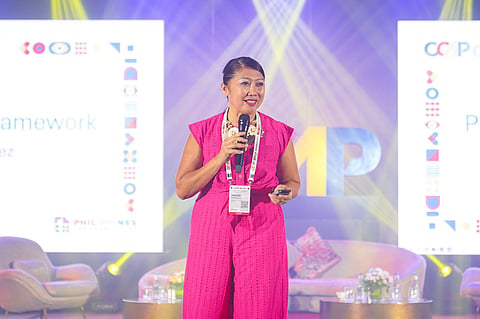
- NEWS
- the EDIT
- COMMENTARY
- BUSINESS
- LIFE
- SHOW
- ACTION
- GLOBAL GOALS
- SNAPS
- DYARYO TIRADA
- MORE

Addressing the information technology and business process outsourcing worries about United States President Donald Trump’s flip-flopping policies on tariffs, the Contact Center Association of the Philippines (CCAP) maintained it is prepared for any changes to be made by the US, the country’s dominant source of outsourced work to the Philippines.
According to the group, as the sector enters a defining moment, global political tensions and emerging technologies are reshaping its trajectory.
The CCAP said the return of US President Trump, whose renewed protectionist stance poses fresh challenges to the country’s top outsourcing market, is at the forefront of this shift.
Outsourced jobs from the US, accounting for approximately 85 percent of total contracts, according to data from Nexford University from 2021.
With the residual demand from the UK and Australia, also susceptible to US policy influence, the country’s IT-BPM industry is bracing for impact.
“The contact center and business process sector are preparing for any policy changes that may affect growth, especially in light of renewed geopolitical uncertainties,” CCAP president Haidee Enriquez said.
CCAP represents over 167 companies engaged in contact center operations. “But we remain confident. Our agility and resilience, sharpened through the pandemic and AI integration, position us to withstand these disruptions.”
“Historical trends support this caution. During Trump’s first term, industry growth fell sharply — from 12.3 percent in 2016 to just 2.5 percent in 2017, and 3.9 percent in 2018. With a second term now underway, the sector is watching closely for signals of renewed economic nationalism and shifts in investor confidence,” she further stated.
Despite the uncertainties, the Philippine contact center industry posted solid growth in 2024.
According to CCAP, the sector achieved an estimated $31.5 billion in annual revenue, up 6.8 percent from the $29.5-billion projection previously set for 2025.
While expectations were not met, CCAP said the growth trajectory remains positive. Contact centers accounted for 83 percent of the IT-BPM industry’s total $38 billion in revenues last year.
Employment also rose, reaching 1.62 million workers in 2024, an 11 percent jump from 1.51 million in 2023.
Further, the contact center workforce represents 89 percent of total IT-BPM jobs.
Enriquez remains optimistic about reaching the industry’s ambitious $49 billion revenue target by 2028.
“We are consistently re-skilling and upskilling our workforce while strategically integrating AI into our operations,” Enriquez said.
“Despite global headwinds, we are creating jobs, accelerating digital adoption, and contributing to national economic growth.”
The challenges and opportunities will take center stage at Contact Islands 2025, the industry’s annual flagship conference organized by CCAP. With the theme “Beyond the Hype: CX, AI, and the Forces Reshaping Philippine Contact Centers,” the summit promises an unfiltered, deeply relevant dialogue among industry leaders.
“Contact Islands 2025 will not be business as usual,” Enriquez said. “We’re hosting honest conversations — real talk — about the powerful forces redefining our industry, our country, and our global role.”
The three-day summit will run from 27 to 29 May 2025 at the FILI Hotel, NUSTAR Cebu, expected to gather top industry leaders, policymakers and global analysts to engage in crucial conversations shaping the future of the Philippine contact center and business process sector.
